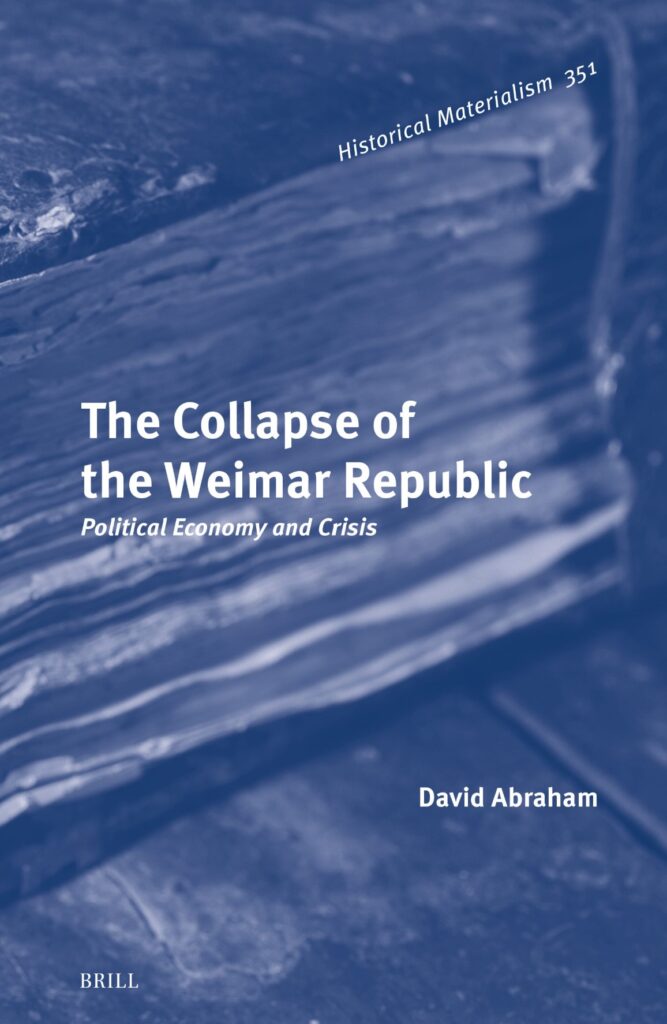David Abraham
Biographical Note
David Abraham is Professor Emeritus of Law at the University of Miami. He holds a B.A. and Ph.D. from the University of Chicago and a J.D. from the University of Pennsylvania. A historian and legal scholar, he has published extensively on the political economy of liberal democracy—its successes and failures—as well as on contemporary issues of immigration and social solidarity.
Readership
This book is particularly relevant to advanced undergraduates, graduate students, and scholars of German and European history, political science, and sociology, as well as to anyone interested in the history of social democracy or the rise of fascism.
Table of Contents
Preface to the First Edition (1981)
Preface to the Second Edition
Foreword to the Third Edition
List of Figures
List of Tables
Abbreviations
Introduction to the First Edition
Introduction to the Second Edition
Introduction to the Third Edition
Benjamin Carter Hett
1 The State and Classes: Theory and the Weimar Case
1 State and Economy in Weimar
2 State and Society in Weimar
3 Stability in Weimar: Bloc 3 and Labour’s Support
4 Crisis and the End of Stability
2 Conflicts within the Agricultural Sector
1 The Modes of Agricultural Production
2 Estate-Owner Domination and the Bases of Rural Unity to 1924
3 1925 to the Crisis: The Absence of Alternatives and Immanence of Conflict
4 The Agricultural Crisis, Its Resolution and Contribution to the General Crisis
3 Conflicts within the Industrial Sector
1 From Prewar Conflict to Post-inflation Equilibrium
2 Industrial Politics in the Period of Stability
3 Industrial Production
4 Interindustrial Conflicts and Mechanisms: AVI, Tariffs, and Reparations
5 Political Responses to the Crisis: Bürgerblock, Brüningblock, and ‘National Opposition’
6 A Note on Industry and ‘Work Creation’
4 Conflicts between Agriculture and Industry
1 Dominant and Dependent Sectors
2 Strategies for Sectoral Interaction after 1925
3 The Economic Interaction of the Two Sectors
4 Strategies 1 and 2: Exports versus Protection, 1925–1931
5 Strategy 3: Modernisation, Conciliation, and Reform
6 After Exports and Reform: Toward a New National Sammlung Bloc
7 1932: Ontogeny Recapitulates Phylogeny
8 Strategies 4 and 5: Cartelisation and Imperialism
5 The Reemergence of the Labour/Capital Conflict
1 Social Compromise: Its Results and Its Limits
2 The Politics of Sozialpolitik
3 Implementing Industry’s Program
6 In Search of a Viable Bloc
1 Organised Capitalism, Fragmented Bourgeois Politics, and Extrasystemic Solutions
2 Collapse of the Grand Coalition: End without a Beginning
3 The Failure of Brüning’s Crisis Strategy
4 The Break between Representatives and Represented
5 Toward the Extrasystemic Solution
6 From New Base to New Coalition
Bibliography
Index

